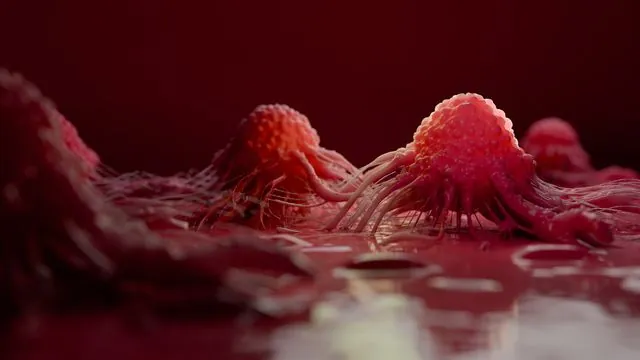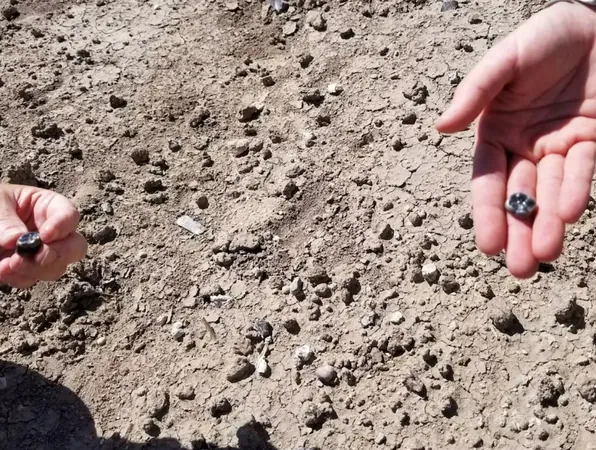
Revolutionary Discovery: Can Microbes Predict Lethal Prostate Cancer?
2025-07-31
Author: John Tan
Groundbreaking research has unveiled a striking connection between specific bacteria found in urine and the risk of aggressive prostate cancer. This promising discovery could pave the way for enhanced diagnostics, enabling doctors to make more informed treatment decisions.
1. Urine Bacteria and Prostate Cancer Risk
In a pivotal study, researchers analyzed urine samples before prostate biopsies and examined cancer tissues. They found that men harboring certain bacteria in their urine had a significantly higher chance of a serious prostate cancer diagnosis. This revelation was validated across a diverse patient population.
2. Unveiling New Bacterial Species
The investigation also led to the identification of four entirely new bacterial species - Porphyromonas sp. nov., Varibaculum sp. nov., Peptoniphilus sp. nov., and Fenollaria sp. nov. These previously unknown microbes were predominantly found in patient urine, and some were even detected in prostate tissues. This suggests a 'prostate-urine reflux loop,' indicating bacteria might travel between the prostate and urinary tract.
3. The Bacterial Warning Sign of Aggressive Cancer
The researchers discovered a particular group of five anaerobic bacteria—three of which are newly identified—dubbed the Anaerobic Bacteria Biomarker Set (ABBS). The presence of these bacteria was alarmingly linked to an increased likelihood of cancer progression, with studies showing a 2.6 times higher risk of disease advancements if they were present in urine or prostate tissue.
4. How Might These Bacteria Influence Cancer?
Though the study does not assert that these bacteria directly cause cancer, it suggests they may play a role in its development. The ABBS bacteria possess genes that could facilitate cancer growth, such as:
- **Testosterone Precursor Production**: Converting cholesterol into androstenedione, crucial for prostate cancer growth.
- **Citrate Modulation**: Potentially influencing citrate levels, which are known to decrease in aggressive forms of prostate cancer.
- **Metabolic Pathway Impact**: Affecting various metabolic processes that cancer cells could exploit.
These findings may not only apply to prostate cancer but also other cancer types, warranting further investigation into their mechanisms and potential therapeutic targets.
5. A Future of Non-Invasive Testing?
Researchers are keen to explore how these bacteria interact with tumors, as this could unlock new treatment avenues. The hope is to develop a non-invasive urine test to screen for aggressive cancer, easing the burden on patients compared to traditional biopsies.
While this research is in its infancy, the implications are incredibly exciting. While it may take time to become a standard clinical practice, it raises important questions about cost-effective methods for evaluating prostate cancer patients at initial diagnosis. Stay tuned as we uncover the mysteries these microscopic organisms may hold!




 Brasil (PT)
Brasil (PT)
 Canada (EN)
Canada (EN)
 Chile (ES)
Chile (ES)
 Česko (CS)
Česko (CS)
 대한민국 (KO)
대한민국 (KO)
 España (ES)
España (ES)
 France (FR)
France (FR)
 Hong Kong (EN)
Hong Kong (EN)
 Italia (IT)
Italia (IT)
 日本 (JA)
日本 (JA)
 Magyarország (HU)
Magyarország (HU)
 Norge (NO)
Norge (NO)
 Polska (PL)
Polska (PL)
 Schweiz (DE)
Schweiz (DE)
 Singapore (EN)
Singapore (EN)
 Sverige (SV)
Sverige (SV)
 Suomi (FI)
Suomi (FI)
 Türkiye (TR)
Türkiye (TR)
 الإمارات العربية المتحدة (AR)
الإمارات العربية المتحدة (AR)